- About Health New Zealand
- Locations
- Allied Health
- Midwifery & Nursing
-
Medical Officers
- All Senior Medical Officers (SMOs)
- Anaesthetists
- Dermatologists
- Emergency Medicine Specialists
- GPs & Rural Hospital Doctors
- General Medicine
- Obstetricians & Gynaecologists
- Oncologists
- Paediatricians
- Pain Medicine Specialists
- Pathologists
- Psychiatrists
- Radiologists
- Surgical Specialities
- Resident Medical Officers (RMOs)
- Specialist Teams

Candidate Information
When you join our journey to create a better health system in New Zealand - Aotearoa, you're embarking on something truly special. From our commitment to being good employers to ensuring our recruitment process is simple and inclusive - we value and respect you at every stage of the process.
Health New Zealand | Te Whatu Ora is dedicated to being a good employer and upholding our equal employment opportunity commitments.
Photo location: Rotorua, Bay of Plenty - Credit: Miles Holden
Working for Health New Zealand
We are dedicated to building a team that is representative of the communities that we are serving. We are committed to supporting health equity in our communities.
Our kaimahi (staff) thrives on the diversity and inclusion of all perspectives and cultures, and we welcome applicants from all age groups, backgrounds, and cultures, we encourage applications from Māori, Pacific people, disabled individuals, and members of the LGBTQIA+ communities.
We strive to offer flexible working practices and conditions that support a healthy work-life balance, including part-time and flexible working arrangements.
Health New Zealand - Te Whatu Ora is a proud member of Diversity Works, an organisation dedicated to promoting diversity and inclusion.
Their tools and resources help us enhance cultural competence, fulfil equal employment opportunity obligations, and improve team dynamics and overall employee satisfaction.
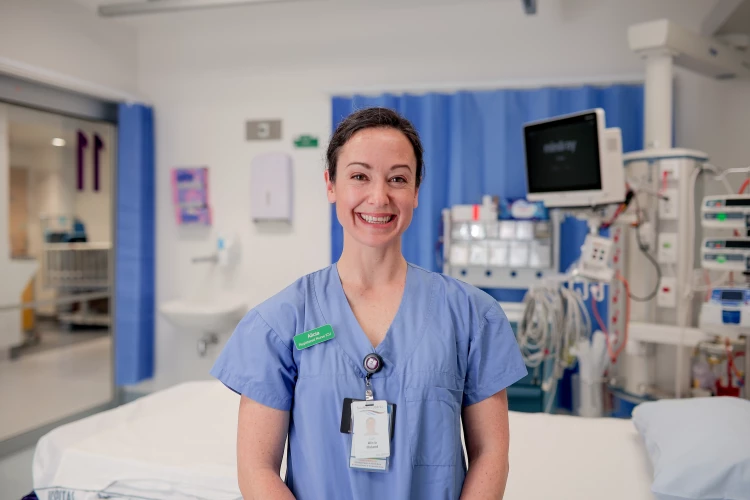

Our recruitment process
Once you've submitted your registration, one of our team will be in touch to chat about our role(s) and how you might join us. You’ll get regular updates as part of our recruitment process, and we’ll introduce you to our Hiring Managers, either through a face-to-face meeting or an interview online. Either way, we’ll make you feel right at home.
We’ll need to make sure that you meet our requirements for employment; we conduct a number of checks on your background, including references including registration. Once all the checking is underway, we’ll bring you on board our waka (boat) and make you feel truly like part of the whānau (family).
Please beware of recruitment scams. Health New Zealand's recruitment processes do not ask candidates for money at any stage.
What the recruitment process looks like
International candidates
Thinking about making the move to New Zealand? Our dedicated International Recruitment Centre connects you with experienced advisors who’ll guide you through every step of the process.
 Step 1: Submit
Step 1: Submit
Complete the registration form on your profession's webpage as your expression of interest
 Step 2: Review
Step 2: Review
Our Candidate Management Team will review your application and check your suitability
 Step 3: Contact
Step 3: Contact
You will be contacted by our Candidate Management Team to discuss career and location options
 Step 4: Referral
Step 4: Referral
We will refer you to a Recruitment Team in your preferred location(s) for further assessment
 Step 5: Progress
Step 5: Progress
Your chosen Recruitment Team(s) will be in touch with you to continue the recruitment process
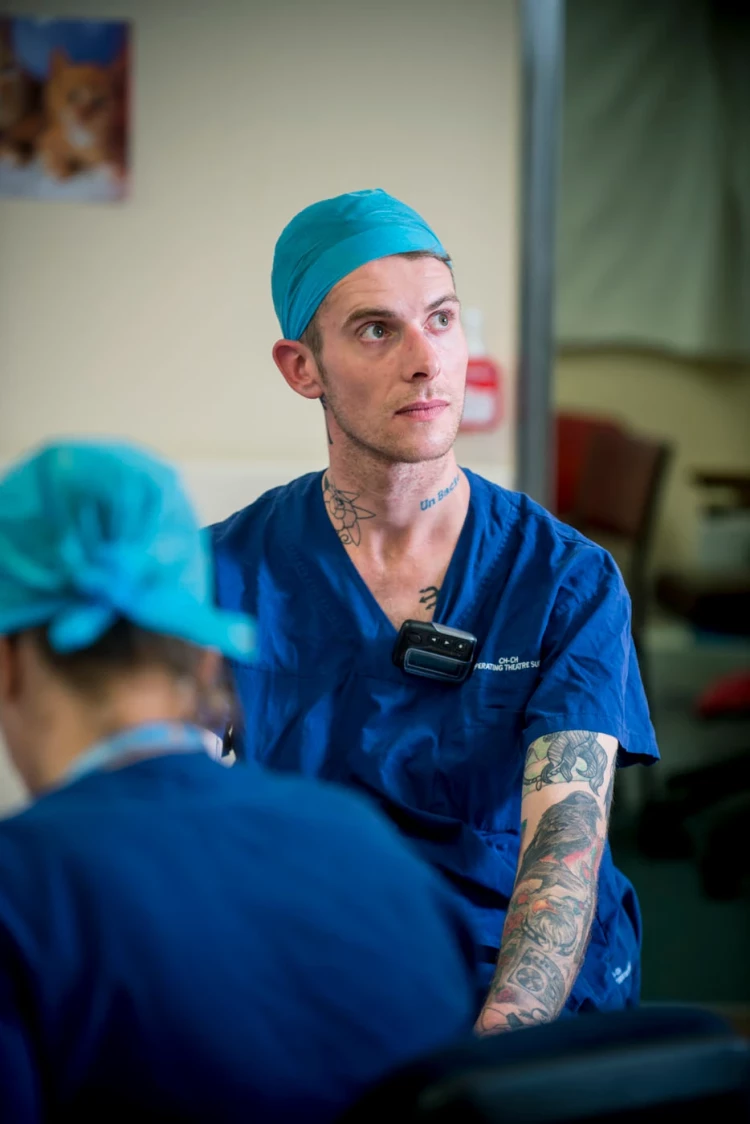
Domestic candidates
Ready to take the next step in your health career?
Browse our current vacancies and apply directly for roles that match your skills and interests.
Each listing includes full details about the application process and what to expect.
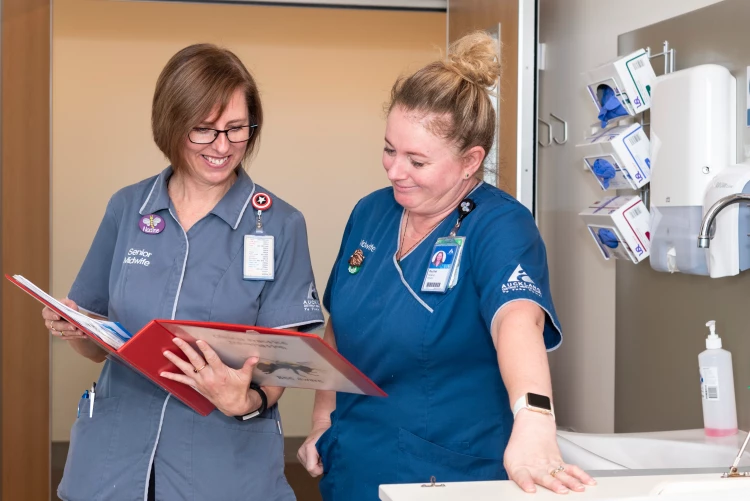

Information for International Candidates
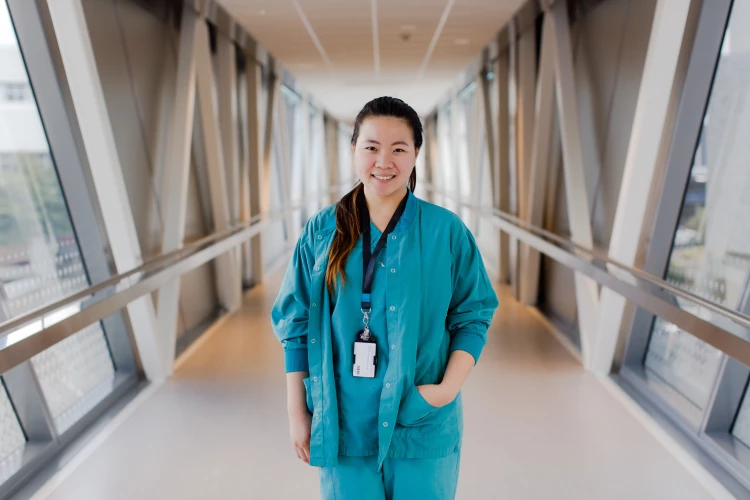
Our Health Immigration Service
Our Health Immigration Service team provide free support to help streamline the candidate journey to their new role and home in New Zealand.
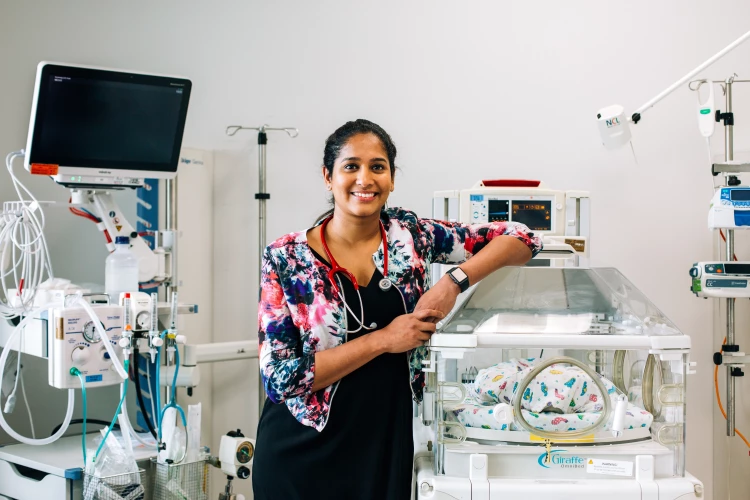
What you need to work here
To legally work in New Zealand, you will need a work visa and professional registration. Health New Zealand can support you to acquire both.

Our Health Immigration Service
About the Health Immigration Service:
Health New Zealand established their Health Immigration Service in October 2022.
Our team of Licensed Immigration Advisers provide advice on the immigration and visa processes for NZ to healthcare employees and potential employees of Health NZ. Please be advised that immigration advice can only be provided by a licensed professional or lawyer.
Our Licensed Immigration Advisors work closely with Immigration New Zealand to ensure we stay informed of any important updates and that we meet our accredited employer obligations to provide expert guidance to both candidates and our recruitment teams. By offering national consistency and dedicated support, we aim to make the visa process as seamless as possible. We also ensure that Green List healthcare roles are priority processed with Immigration NZ for complete applications.
Latest Updates from the Health Immigration Service:
Longer visas for partners of New Zealanders:
Effective 1st October 2024 the maximum duration for work and visitor visas for partners of New Zealand citizens or residents will increase from 2 years to 3 years, provided they’ve lived together for at least 12 months. This change gives couples more time to save for residence application fees and aligns visa durations with those for partners of temporary migrants. It applies to both applications made from October 1, 2024, and pending applications as of that date.
Current visas won't be automatically extended.
Immigration NZ visa application and Accredited Employer Job Check fees increasing:
Effective 1st October 2024, New Zealand introduced new visa charges.
The new charges will apply to various visa categories, with specific rates outlined in the official table here: Increase to visa charges comes into effect from 1 October | Immigration New Zealand.
We have summarised the most relevant changes below for your convenience:
-
Migrants applying for the skilled residence category (such as the ‘Straight to Residence Visa’) will be charged $6,450, up from $4,290 currently.
-
Migrants applying for an Accredited Employer Work Visa will be charged $1,540, up from $750 currently.
-
Migrants applying for a Work Visa Partnership will be charged $1,630, up from $860 currently.
-
Job Check applications will also increase to $735.00, up from $610 currently.
-
Please note that these fees are subject to change, as further advice from INZ on the fee increases become available
Visa applications must include all required evidence, like health and identity documents, at the time of lodgement of the application to avoid being declined. Therefore for health workers who have been offered employment with Health NZ, we would encourage you to contact our Health Immigration Service for further guidance.
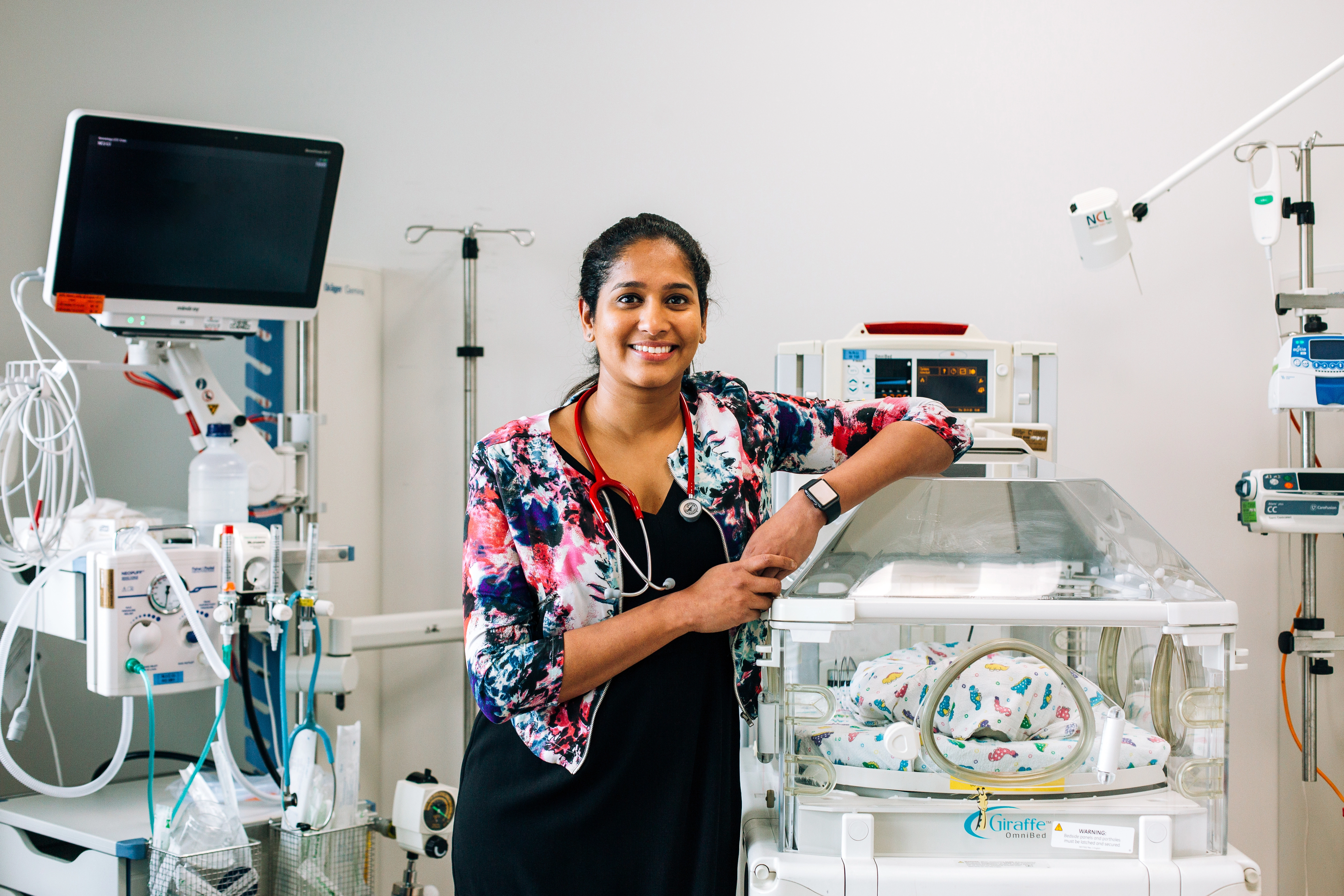
What you need to work here
Work Visa
Acquiring a New Zealand Work Visa is a legal requirement to work here. There are a variety of visa options depending on your profession and circumstances, and Health NZ can support you along the way.
Acquiring a New Zealand Work Visa
Many clinical frontline professions are on Tier 1 of New Zealand's Green List. This means you are eligible for either a temporary Work Visa or a Straight to Residence Visa. With the Straight to Residence Visa, you can even apply for and be granted New Zealand residency before you arrive, provided you have NZ clinical registration, and an acceptable offer of employment from an accredited employer, like us!
Health New Zealand – Te Whatu Ora is an Accredited Employer with Immigration NZ, we are therefore able to employ migrants via the Accredited Employer Work Visa (AEWV) or the Straight to Residence Visa (STR). Once you become part of the Health New Zealand whanau (family) we’ll support you with settling into New Zealand and your new role.
Find resources, tools, and guidance and explore visa options for you and your family on the Immigration New Zealand website.
Professional Registration
Most frontline workforces require you to obtain New Zealand registration and an Annual Practising Certificate before applying for a visa and starting work.
The New Zealand Professional Registration Bodies by workforce are listed below:
Medical:
| Profession | Professional registration body |
|---|---|
| General Practitioners (GPs) | |
| Resident Medical Officers (RMOs, Junior Doctors) | |
| Senior Medical Officers (SMOs, Senior Medical Officers, Specialists) |
Nursing and Midwifery:
| Profession | Professional registration body |
|---|---|
| Nurses | |
| Mental Health & Addictions Nurses | |
| Midwives |
Allied Health:
| Profession | Professional registration body |
|---|---|
| Audiologists | |
| Dental | |
| Dietitians and Nutritionists | |
| Medical Radiation Technologists | |
| Occupational Therapists | |
| Optometrists & Dispensing Opticians | |
| Paramedic | |
| Physiotherapists | |
| Podiatrists | |
| Psychologists | |
| Social Workers | |
| Speech Therapists |
Mental Health and Addiction
| Profession | Professional registration body |
|---|---|
| Addiction Practitioners | |
| Occupational Therapists | |
| Psychiatrists | |
| Psychologists | |
| Social Workers |
Cancer Care
| Profession | Professional registration body |
|---|---|
| Pathologists | |
| Radiation Oncologists | |
| Radiation Therapists |
Processing times for registration applications can vary so check the processing times directly with your registration board to plan ahead.

Information for Immigrant Staff
Settling into life in New Zealand
Our way of life
Languages in Aotearoa
English is the most commonly used language in Aotearoa, however, New Zealand has 3 official languages: English, Māori and NZ Sign Language. Te Reo Māori (Māori language) is also widely used as well as many Pacific languages, especially in Tāmaki Makaurau (Auckland) which is the largest Pacific city in Aotearoa New Zealand. We suggest becoming familiar with how certain words are used, you can learn more about New Zealand slang here.
Getting a driver's licence
If you have a valid overseas driver's licence, you can convert it to a NZ driver's licence. A valid licence means that your licence is not suspended, disqualified or revoked in the country of issue and must either be current or expired within the last 12 months. You can only drive using an overseas licence for 12 months from your last date of entry into Aotearoa.
If you’ve been in Aotearoa for more than 12 months, you won’t be able to drive on your overseas driver's licence anymore. You must have a NZ licence. You will need evidence of your identity, proof that your eyesight meets the required standard, a medical certificate if required, your overseas driver's licence and a translation if not in English, let the agent take your photo and signature, pay the application fee, provide high-quality colour photocopies of all original documents you have provided. Note that you will need to present your physical overseas driver's licence.
Waka Kotahi (NZ Transport Agency) provides advice on motor registration, buying a car, car licensing, vehicle change of ownership and warrant of fitness(WOF) for cars.
Cost of living
It is likely that the cost of living will be different than what you are accustomed to in your home country. Immigration NZ have a cost of living calculator or check out sorted.org.nz for various helpful budgeting resources and tools.
Accommodation and Housing
Accommodation prices vary throughout the country, with higher prices in the main centres. New Zealand rental properties are usually unfurnished and may not have features like central heating or double glazing that you may be used to.
Find what accommodation could look like in the district you are moving to.
Temporary accommodation
You may consider booking temporary accommodation until you can find a longer-term rental - our relocation team can help you search, view and apply for rentals. Visit BookaBach, Holiday Houses, Airbnb, and Wotif.
Renting a house
The rental market in Aotearoa is regulated by the government under the Residential Tenancies Act 1986. If you are renting for the first time you will need to sign an agreement with the landlord and pay a bond for up to four weeks rent in advance. The bond is lodged with the government's Tenancy Services. At the end of the tenancy, you will receive your bond back minus any damage costs or unpaid rent. Aotearoa protects long-term tenancies. Read the rules about changing the terms of the tenancy agreement.
Local rental agencies can help you to locate a property. Some to take a look at are TradeMe, OneRoof, RealEstate.co.nz and Homes.
Note that most rentals in Aotearoa are unfurnished however furniture and whiteware can be rented in some parts of the country. Find out more about renting in New Zealand.
Buying a house
Use the 'Help us assess if you can buy a house to live in' tool to determine if you can buy a house in Aotearoa. In general, only residents and citizens can buy a house to live in in New Zealand.
Power and Internet - get connected
We suggest you take a look at www.powerswitch.org.nz
If you are renting a house you will need to access power, phone, and internet connection through private companies.
A variety of companies provide internet and phone connections. Immigration NZ provides advice about how your communications can get connected.
There are a range of power providers across the country including Mercury, Contact Energy, Meridian and Powershop.
Power outlets in Aotearoa may vary from those in other countries and adaptors can be purchased from various electronic retail stores.
Working in New Zealand
Getting Paid
All staff are paid fortnightly by direct credit into their bank account. Payment is for the preceding fortnight worked. Queries about payments should be directed to the relevant Team Leader / Manager in the first instance.
Your Team Leader / Manager will be able to guide you on the local preferences however generally speaking:
- All leave must be applied for in advance through the Team Leader / Manager.
- The Expenses Claim Form must be completed, and receipts attached before expense claims can be approved and reimbursed (if offered in a bond agreement).
Advice about how to set up a bank account is covered in the Taxes and Personal Finances section.
Bond agreement (if offered)
Health New Zealand will provide you with financial support to relocate and get settled to the value outlined in your employment agreement.
Annual leave entitlements
All employees are entitled to four (4) weeks paid annual leave days per year after 12 months of continuous employment. Sometimes employers offer additional entitlements - your employment agreement will state the exact amount of annual leave you are entitled to, and when.
Sick leave entitlements
All employees are entitled to a minimum of 10 days paid sick leave per annum after the first 6 months in their role, and 10 days can be carried over to a maximum of 20 days. Sometimes employers offer additional entitlements - your employment agreement will state the exact amount of sick leave you are entitled to, and when.
Parental Leave
You can read more about parental leave entitlements and types and your eligibility on the Employment NZ website.
Public holidays
There are 12 public holidays per year including national holidays (recognised nationwide) and may or may not fall under the same date as well as regional (anniversary) holidays.
Schooling and Childcare
Enrolling children at school and preschool – compulsory attendance
You can enrol your child in school before they’re 5, though they won’t start until they turn 5 and must have started by the time they are 6.
Children must stay at school until they turn 16 years of age. Parents may apply to educate children at home.
Tip: If you have children, and have a school in mind, you may need to live within the school zone.
Childcare
Early childhood education (ECE) provides education and care for children before they are old enough to go to primary school. It is not compulsory. For three to four-year-olds, the first 20 hours per week are fully funded by the government.
Most children in Aotearoa (95%) get some form of early childhood education, usually for 20-22 hours a week.
Education.govt.nz provides practical information about education for parents and carers.
Banking and Taxes
Taxes in New Zealand
New Zealand operates under a progressive tax system, where individuals with higher incomes pay a higher percentage of their earnings in taxes. Tax rates are divided into different income bands. All personal income is taxed. If you are a New Zealand resident, you will need to pay income tax on all income you receive from New Zealand and overseas. You can use this income tax calculator from the IRD to work out what percentage of tax you will pay in Aotearoa. You will need to have an IRD number before you can start, you can apply for an IRD number on the IRD website here.
Banking in New Zealand
You can open a bank account in Aotearoa before you travel but will need to visit a branch to activate it once you arrive. You need a visa that allows you to stay in the country for some time such as a work, residence, or student visa. You may wish to provide the NZ bank with a reference letter from your current bank which includes a credit score or rating. Health New Zealand - Te Whatu Ora can provide you with a letter of a confirmed work address to speed up the process. Electronic Funds Transfer at Point of Sale (EFTPOS) is a way to use funds from your bank account when shopping.
To open a bank account, you will need the following:
- Proof of identity – NZ ID or passport
- Proof of address – could be your current overseas address but will need to provide a permanent address in Aotearoa
- A NZ IRD (Internal Revenue Department) number – if you don’t have one yet, you can use your tax number or tax declaration from your country of origin
- Proof of your visa – could be work, residence, or student visa
Here's a list of registered banks in New Zealand.
Superannuation (KiwiSaver)
KiwiSaver Savings Scheme
KiwiSaver is a government-supported savings scheme designed to help employees save for retirement. If you choose to contribute your employer will also contribute to your KiwiSaver account, and the New Zealand government may also contribute.
How KiwiSaver works:
-
Employee Contributions: As a member of KiwiSaver, you can choose to contribute a percentage of your gross salary or wages (3%, 4%, 6%, 8%, or 10%).
-
Employer Contributions: Health New Zealand – Te Whatu Ora is required to contribute at least 3% of your gross salary or wages to your KiwiSaver account (Up to 6% if you are an eligible SMO).
-
Government Contributions: If you contribute at least $1,042.86 per year, the government will match your contribution up to a maximum of $521.43 annually.
Benefits of KiwiSaver:
-
Using your KiwiSaver for retirement and buying your first home: KiwiSaver is a long-term savings scheme designed to help you prepare financially for retirement. However, after at least three years of contributions, you can also withdraw most of your savings—including government contributions—to put towards buying your first home.
-
Portability: KiwiSaver is portable, meaning that it stays with you regardless of which job you’re in. If you move to a new job, you and your employer can continue contributing to your KiwiSaver. This continuity helps ensure that your retirement savings grow steadily, regardless of career changes.
-
Investment choices: KiwiSaver accounts offer a range of investment funds, from conservative to growth-focused options. This allows individuals to choose an investment strategy that best fits their risk profile and retirement goals. Over time, the returns can help significantly boost the value of your savings.
-
Security and trust: KiwiSaver is regulated by the New Zealand government, providing a high level of trust and security in the system. As a government-backed initiative, there’s less risk involved compared to other, unregulated investment vehicles.
-
Permanent emigration withdrawal: If you permanently emigrate from New Zealand (excluding moves to Australia), you can withdraw your KiwiSaver funds after one year. However, government contributions will be refunded to Inland Revenue
Eligibility:
You’re eligible if you are living (or normally living) in New Zealand and are either:
-
a New Zealand citizen or entitled to be in New Zealand indefinitely
-
an Australian citizen
-
a New Zealand or Australian residence permit holder.
KiwiSaver is a valuable benefit that helps you secure your financial future with minimal effort. For more info, visit the official KiwiSaver website.
Health Services
Access to publicly funded healthcare
Aotearoa has a universal public health system. It is one of the top 20 healthcare systems in the world, on a par with the United States and the United Kingdom. As a migrant, you may be eligible for publicly funded healthcare if:
- You hold a residence visa or
- You have a work visa valid for 2 years or more
You can check here if you are eligible for publicly funded health care.
Accessing primary medical care
Primary care is the health care that you receive in your local community. Primary health care covers a broad range of health and preventative services, including health education, counselling, disease prevention and screening. Visits to community clinics cost less if you are enrolled as a patient prior to appointments; so be sure to enrol with a primary care provider. You can search for a doctor near you on Healthline, or freephone Healthline on 0800 611 116.
Be sure to check your and your family's access to free health care and health insurance.
Dental care
General dental care for people over 18 years is not funded by the government in New Zealand. However, basic dental care for eligible school children is free up to 18 years of age, and Te Whatu Ora provides oral health services at many schools across the country with permanent clinics or mobile dental units.
Dentists can be found all over the country, visit the Healthline website for more.
Accident Compensation Corporation (ACC)
Here in Aotearoa, we fund healthcare differently. The Accident Compensation Corporation provides comprehensive, no-fault personal injury cover for New Zealanders and visitors. ACC is funded by the government and the NZ public.
As a clinician, you can lodge claims on behalf of your patients. You must check with your manager about how to lodge a claim in Te Whatu Ora. ACC provides general information about the scheme for clinicians. ACC provides a series of options for clinicians to learn more about the scheme, and claims via online learning and foundational webinars.
Cole’s Medical Practice in NZ gives practical advice to doctors in New Zealand (whether international or NZ medical graduates). The Goodfellow unit has resources about certifying work capacity after injury.
Mental health
There are a variety of helplines available. Visit the Family Services Directory for more mental health support providers. If you need urgent help, free call or text 1737.
Depression Helpline
Freephone 0800 111 757 or free text 4242 to talk to a trained counsellor.
Alcohol Drug 24/7 Helpline
Freephone 0800 787 797
Access public health messages
Health New Zealand - Te Whatu Ora's Facebook, LinkedIn or Instagram
Emergency Services
Ambulance and Fire
For emergencies, dial 111.
Police
Dial 111 - for emergencies (if something is happening now or has just happened, or if you or someone’s safety is at risk).
Dial 105 - for non-urgent things that you think the NZ Police should know.
Accident and Emergency services
All public hospitals have Accident and Emergency facilities. Primary care Accident and Emergency or local "A&Es" are available for after hour emergencies in most locations.
National Crisis and National Emergency Management
The NZ government has established agencies to lead local teams to deal with disasters and other emergencies. Check out the Civil Defence website and sign up for emergency mobile alerts on Getready.co.nz to receive emergency notifications.
Mental health
There are a variety of helplines available. Visit the Family Services Directory for more mental health support providers. If you need urgent help, free call or text 1737.
Depression Helpline
Freephone 0800 111 757 or free text 4242 to talk to a trained counsellor.
Alcohol Drug 24/7 Helpline
Freephone 0800 787 797
Domestic violence help
If you or someone you know is in immediate danger, call the police on 111. You can call the Women's Refuge Crisis line: 0800 REFUGE or 0800 733 843. Read more here for a list of family violence service providers.
Public and Community Services
Migrant centres and i-SITEs
Immigration NZ’s NZ Migrant Settlement and Integration Strategy supports recent migrants to make NZ their home. The New Zealand Newcomers Network helps new migrants make new connections.
i-SITE Visitor Information Centres can provide unbiased, local advice to get the most out of exploring our beautiful country.
Finding a job – for the family
Recruitment agencies offer job search services or check if there is a job at Te Whatu Ora. Google search – recruitment agencies (insert town). Aotearoa has a number of websites for job seekers. Kiwi Health Jobs, TradeMe Jobs and Seek. A visa is required before people can be employed.
Community participation – volunteering
Volunteering is a great way to meet people, make connections and give back to the community. There are various volunteering options to choose from based on your values and interests, and a vast number of community groups to get involved in Aotearoa.
Family support services
The Strengthening Families process connects a family who requires assistance with more than one agency or community service when a family needs help. All families need help from time to time. Find support wherever you are living in Aotearoa. Check out health pages for more links to health services.
Domestic violence support
Domestic violence help can be accessed in Aotearoa. If you or someone is in immediate danger, call 111 and ask for the police.
Counselling services
The NZ Association of Counsellors provides a list of qualified counsellors. Note that payment may be required.
Child abuse and Youth services
You can report suspected abuse to Oranga Tamariki. Oranga Tamariki (Ministry for Children) is a government department. If you need help, freephone 0508 326 459 or email contact@ot.govt.nz.
If you or someone is in immediate danger, call POLICE on 111. KidsHealth provides a list of various helplines for individuals and families.
Services for people with disabilities
An acceptable standard of health is required whether moving to Aotearoa temporarily or as a resident. There are a variety of providers of services for people with disabilities. The Whaikaha - Ministry of Disabled People’s website contains useful links for people with disabilities.
Public libraries
There is a network of public libraries across Aotearoa. You and your family are welcome to visit in person, or listen to and watch audio books online.
Public transport
Plan your journey whether traveling locally or around the country using the Waka Kotahi NZ Public Transport agency's journey planner.
Rubbish Collection
Rubbish collection is managed by local authorities. Contact your local authority for refuse collection days.

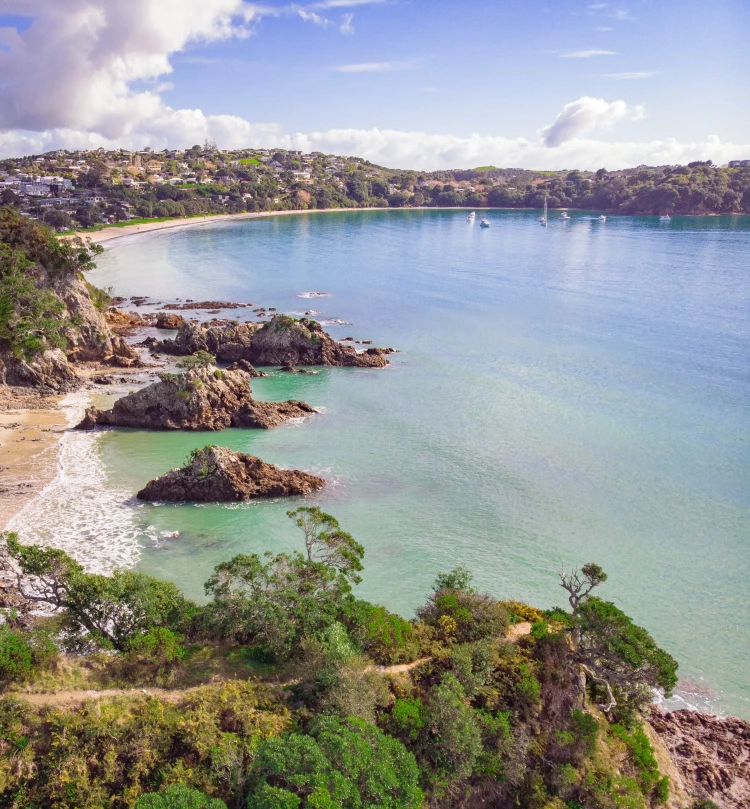
Search for a role
We'd love for you to join the Health New Zealand - Te Whatu Ora whānau (family).
Use the search bar below to find a role for you.